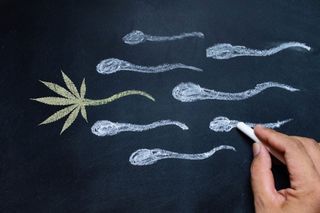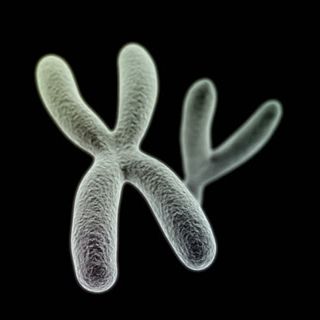
Marijuana Changes Sperm — But Scientists Don’t Know Exactly How
“As a precaution, stop using cannabis for at least six months before trying to conceive.”

Sperm quality has a huge — though not entirely well-understood — impact on the genetic material that gets passed down to offspring. And the more we learn about the various ways that sperm quality can change, the clearer it becomes that men’s overall health is vitally important to maintaining good sperm quality. In particular, alcohol and drugs can change sperm, and new research from Duke Health confirms that the active ingredient in marijuana, tetrahydrocannabinol (THC), alters sperm.
Much like previous research that has shown tobacco smoke, pesticides, flame retardants and even obesity can alter sperm, the research, published in the journal Epigenetics, shows THC also affects epigenetics, triggering structural and regulatory changes in the DNA of users’ sperm. Experiments in rats and a study with 24 men found that THC appears to target genes in two major cellular pathways and alters DNA methylation, a process essential to normal development. What researchers don’t know is whether those DNA changes caused by marijuana are passed to users’ children, and in what way those changes could impact offspring.
The study defined regular users as those who smoked marijuana at least weekly for the previous six months. Their sperm were compared to those who had not used marijuana in the past six months and not more than 10 times in their lifetimes. The higher the concentration of THC in the men’s urine, the more pronounced the genetic changes to their sperm were, the authors found.
THC appeared to impact hundreds of different genes in rats and humans, but many of the genes did have something in common — they were associated with two of the same major cellular pathways, said lead author Susan K. Murphy, Ph.D., associate professor and chief of the Division of Reproductive Sciences in obstetrics and gynecology at Duke. One of the pathways is involved in helping bodily organs reach their full size; the other involves a large number of genes that regulate growth during development. Both pathways can become dysregulated in some cancers.
“In terms of what it means for the developing child, we just don’t know,” Murphy said. It’s unknown whether sperm affected by THC could be healthy enough to even fertilize an egg and continue its development into an embryo, she said.
The study was relatively small, and did not control for other factors that might impact sperm quality, so much broader research would be required to confirm and explain the findings further. But it’s an important starting point to underscore the importance of men’s lifestyles and recreational drug and alcohol use when they are considering conceiving. We still don’t know a lot about how sperm is damaged by these activities, and when it is, how much of this damage can have an impact on a child conceived with that sperm. For the time being, the researchers warn, it would be best not to smoke any marijuana at least six months before conceiving.
Related


Six Months of Regular Exercise Can Lend a Cognitive Boost
